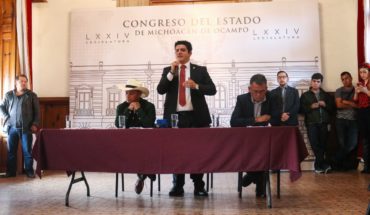Presented by:
https://www.elmostrador.cl/wp-admin/profile.php
Good and happy Monday! I interrupt the long weekend with a limited version of El Semanal. Bad as bad, as I told you in Wednesday’s special edition, I’m celebrating my wedding anniversary with a couple of days working at half a machine.
I start with the quilombo that was armed by the news I gave you here first: the investigation of the National Economic Prosecutor’s Office (FNE) to the casinos for collusion and the raid that it carried out with the PDI to the houses of the three most important managers and owners of that industry. It’s a developing story. next week I will have new details.
In this edition of El Semanal: the details of the reserved report that a senior executive of BTG Pactual wrote for foreign investors about the scenario for the day after the plebiscite and a political analysis of why we arrived at the current situation.
Before starting with what summons us, I want to invite you to share or join El Semanal, and El Semanal Exprés, so that our community continues to grow. Subscribe to or share this newsletter.
1
1- THE DAY AFTER THE PLEBISCITE
What happened?. A few weeks ago, Matías Repetto, one of the most influential names in the local market, former general manager of BTG brokerage Pactual Chile and now part of the executive team of the Brazilian giant in New York, wrote a detailed report for the bank’s most important clients in the United States, to which I had access. The report was also shared with institutional funds and local clients.
The focus of the analysis is what could happen after the constitutional referendum. Repetto explains that the idea is to provide alternative scenarios, find the right questions, and hopefully also be able to help choose the right signals in the midst of a fluid and complex landscape.
Their conclusions: whatever the result, uncertainty will continue, instability will continue, because, even if the Rejection wins, the Constitution will have to be reformed as well. Repetto says there is consensus that the proposal is really poor. It states that the text is legally obtuse (opening up future structural interpretations of several chapters) and highlights that more than 75% still want a new Constitution. Therefore, the campaigns of both sides promise reforms to the new Magna Carta if the Approve wins, or to the current one if it wins Rejection.
If you want to read the full story, subscribe to The Weekly Counter and join our community.
2
2- WEALTH TAX AND TREASURY CALCULATIONS
What happened?. The Ministry of Finance presented a report in which it calculates that the effect of the wealth tax on the richest 1% will result in their tax burden rising from 15.8% to 19%. The same document adds that it will collect between 0.48% and 0.71% of GDP.
The document analyzes the effect of the property tax as a complement to income tax. The goal is to have a tax system that is more progressive. The wealth tax is one of the most controversial elements of the tax reform. According to the Treasury, for the 0.1% of higher incomes, the burden would rise by 4.92% percentage points, to 20.1%. And for 0.01%, it would rise 4.57 points, to 15.9%.
If you want to read the full story, subscribe to The Weekly Counter and join our community.
3
3- THE COST OF HAVING A GREEN ECONOMY
What happened?. A new report from the Inter-American Development Bank (IDB) says reaching net-zero emissions by 2050 can generate net benefits of $7 billion in Chile. The benefits would be more than triple for other countries in the region. The report adds that the transformations would add 15 million net new jobs to the region and 1% additional GDP growth by 2030.
The costs: According to the report, for Latin America and the Caribbean to meet the climate goals of the Paris Agreement by 2030, it would have to allocate between 7% and 19% of its GDP, the equivalent of US$ 1.3 trillion of public and private spending per year.
If you want to read the full story, subscribe to The Weekly Counter and join our community.
4
4- CHART OF THE WEEK: WHY THE BCCH INTERVENED
The rationality behind the exchange rate intervention of the Central Bank of Chile (BCCh). Vice President Pablo García explained it in a presentation he made at an event organized by the Forum for Fair and Sustainable Development. Since the announcement of the intervention, the weight has been ap apit was more than 20% against the dollar and on Friday closed at 877.
Garcia revealed details of what triggered the BCCh’s decision to intervene. He explained that the exchange rate depreciation was not only abrupt but also began to strain price formation, also increasing the risk of contagion to other segments of the financial market.
As we anticipated in this space 3 weeks ago, García confirmed that, in the days prior to the intervention, “a significant increase in the difference between the buying and selling points was observed together with the depreciation of the peso, both in its average and dispersion between maximums and minimums observed. Likewise, in the fixed income market, long-term interest rates did not follow trends observed in international comparators.”
If you want to read the full story, subscribe to The Weekly Counter and join our community.
A message from the AFP Association
For more information click on the image
Almost all Chileans want a constitutional change that ensures individual ownership of pension funds.
The importance of maintaining individual ownership of pension savings is consistent with the majority and sustained perception from January 2020 to June 2022 that pension funds belong to workers.
In this sense, according to the Criteria Survey on Pension Issues of June 2022, 86% of people think that a new pension system should have as a characteristic that the contributions contributed by workers are their property and go to an individual account.
In addition, 77% want to choose who manages future contributions between a state and private body.
Full information can be found at this link or by clicking on the image.
5
5- NO CLEATS OR COBARTAS
–De Gregorio will vote Rejection. The former president of the Central Bank revealed this Sunday in an interview in La Tercera. The one who was also a minister during the Government of Ricardo Lagos, explained it this way: “I will vote Rejection because I believe it is better for the country, its development and to ensure social rights.”
His decision contrasts with that of Roberto Zahler, who was elected president of the BCCH during the Government of Patricio Aylwin, who two weeks ago joined the Apruebo and stressed – in the Diario Financiero – that the proposal that will be voted on this September 4 “cares about social capital and that has a positive economic impact”.
Codelco uses Artificial Intelligence and Big Data to extract more copper from its older mines. The state-owned miner is looking to increase efficiency amid a shortage of new deposits and low grade of ore being extracted from its older operations.
If you want to read the full story, subscribe to The Weekly Counter and join our community.
–The presidential campaign in Brazil officially starts: Lula vs. Bolsonaro. In the market they are attentive to the impact of Bolsonaro’s decision to open the fiscal wallet to finance social plans.
– The JP Morgan report that set off the alarm in lithium mining companies in Chile and with which they seek to pressure the Government. The investment bank published a report in which it projects that in six years Argentina will surpass Chile as the world’s second largest producer of lithium.
According to Bloomberg, Morgan analysts’ calculation is that in 2028 Argentina will produce 316 kilotons (kT) of lithium carbonate equivalent (LCE) above the 303 kT forecast for Chile.
If you want to read the full story, subscribe to The Weekly Counter and join our community.
6
6- AGENDA OF THE WEEK: GDP OF 2 QUARTER
– On Thursday, August 18, we will have the growth figures for the second quarter (and, therefore, those for the first half of the year). Bloomberg says the market estimates that gross domestic product (GDP) grew 5.7% between April and June compared to the same period last year. Compared to the first quarter, growth is projected at just 0.3%, reflecting the cooling the economy is experiencing. The Balance of Payments and International Investment Position will also be published on the same day.
A special report by the BCI says the fiscal scenario presents major challenges. It estimates that sustainability would be affected by a deterioration in the economic scenario and the tax reform, which, although it would raise revenues, would have negative impacts on growth.
– Luis Felipe Céspedes invited to give advice to Argentina. This Tuesday, the former Minister of Economy and current Counselor of the Central Bank presents via teleconference in the seminar “Economic Programs of Stabilization and Sustained Growth for Argentina”, organized by the IAE Business School of the School of Administration and Business of the UniversAustral idad of Argentina.
– Chilean Bitcoin. This Thursday the Counselor of the Central Bank, Alberto Naudon, presents – via teleconference – in the seminar “Official digital currency for Chile?”, organized by the BCCh and the College of Engineers.
7
7- INVITATION TO A NEW WORKSHOP OF EL MOSTRADOR SEMANAL
We want to invite you to talk about the capital market as a tool for inclusion and economic development.
The conversation is part of the “In Context” cycle of meetings, an alliance between El Mostrador Semanal and SURA Asset Management Chile.
The guests are Andrea Tokman, chief economist of Quiñenco, holding company of the Luksic Group; and Jaime Munita, manager of AFP Capital.
It will be on Wednesday 17 at 7:30 p.m. Here is the link so you can participate.
Presented by:





